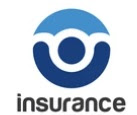Insurance plays a crucial role in protecting small businesses from potential risks and liabilities. Here's an overview of insurance coverage options and requirements for small businesses:
General Liability Insurance: General liability insurance provides coverage for third-party bodily injury, property damage, and personal injury claims. It protects businesses against lawsuits and the associated legal costs. Many small businesses consider general liability insurance essential as it provides broad coverage for common risks.
Property Insurance: Property insurance covers physical assets such as buildings, equipment, inventory, and furniture against damages or losses caused by perils like fire, theft, vandalism, or natural disasters. Small businesses that own or lease property should consider property insurance to protect their valuable assets.
Business Interruption Insurance: Business interruption insurance helps businesses recover lost income and cover ongoing expenses if they are forced to temporarily shut down due to covered perils, such as fire, flood, or other physical damages. It provides financial support during the recovery period.
Professional Liability Insurance: Professional liability insurance, also known as errors and omissions (E&O) insurance, is crucial for businesses that provide professional services or advice. It offers protection against claims of negligence, errors, or omissions that may result in financial losses to clients.
Workers' Compensation Insurance: Workers' compensation insurance is typically required for businesses with employees. It provides coverage for medical expenses, lost wages, and disability benefits for employees who suffer work-related injuries or illnesses. Requirements for workers' compensation insurance vary by state.
Commercial Auto Insurance: Commercial auto insurance covers vehicles used for business purposes, including company cars, delivery vehicles, or vehicles owned by the business. It provides coverage for property damage, bodily injury, and other liabilities arising from accidents or collisions involving business vehicles.
Cyber Liability Insurance: Cyber liability insurance protects businesses against the financial losses and liabilities resulting from data breaches, cyber attacks, and other cyber incidents. It covers expenses such as forensic investigations, customer notification, legal fees, and potential lawsuits related to cyber incidents.
Product Liability Insurance: Product liability insurance is important for businesses that manufacture, distribute, or sell physical products. It provides coverage for injuries or property damage caused by defective or unsafe products. Product liability coverage helps protect against lawsuits and related expenses.
Employment Practices Liability Insurance (EPLI): EPLI covers businesses against claims related to employment practices, including discrimination, harassment, wrongful termination, or wage violations. It provides coverage for legal defense costs, settlements, or judgments associated with such claims.
Directors and Officers (D&O) Insurance: D&O insurance protects the personal assets of directors and officers in case they are personally sued for alleged wrongful acts or mismanagement. It provides coverage for legal defense costs and settlements or judgments.
The insurance needs of small businesses can vary based on their industry, size, and specific risks. It's advisable for small business owners to assess their needs, consult with insurance professionals or brokers, and carefully review policy terms and coverage limits to ensure they have appropriate coverage for their unique requirements. Compliance with insurance requirements may also vary based on industry regulations and local laws, so it's essential to understand any specific insurance obligations that apply to your business.



0 Comments